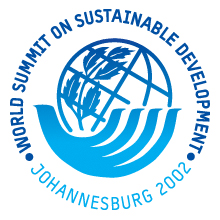Partnership on Sustainable, Low Carbon Transport
Description
Transport in developing countries is the one of the largest, and fastest growing, source of GHG emissions. Transport related CO2 emissions are expected to increase 57% worldwide in the period 2005 ? 2030, and it is estimated that transport (passenger and freight) in developing countries will contribute about 80 percent of this increase. At the same time transport is largely missing in climate change mitigation policies and actions worldwide and in particular those aimed at the developing countries. Growing GHG emissions from the transport sector in developing countries are inextricably linked to an overall lack of sustainability expressed by poor urban planning, increased motorization, increased air pollution and noise, growing congestion and decreasing road safety. Technological improvements by themselves will not be enough for the transport sector to make a significant contribution to mitigation of GHG; a sector wide re-orientation to low carbon sustainable transport is required which combines policies and measures to (a) avoid/reduce the need for travel, (b) shifts to, or keeps transport at the most efficient mode, and (c) improves efficiency of motorized modes of transport. Developing countries should seize the opportunity to make their transport systems and infrastructure low carbon and more sustainable through a combination of: increased public awareness, low-carbon, sustainable transport policies, supportive policy instruments, institutional capacity development, appropriate pricing mechanisms and mobilization of financial resources.
The partnership has four specific objectives: a. The integration of sustainable, low carbon transport in climate negotiations, as well as national and local climate policies and programs, b. The integration of climate considerations in regional, national and local transport policies, c. Mainstream Sustainable, Low Carbon Transport in strategies and operations of international development organizations, d. Contribute to sustainable development and the millennium development goals especially providing access to or for goods and services by lower income groups.
The thematic scope of the Partnership is on land transport in developing countries and includes freight and passenger transport. Both motorized and non-motorized transport is included. The geographical scope of the Partnership is developing countries. The Partnership will initially focus on Asia, Latin America and Africa. The Partnership builds on previous work on sustainable transport by UN-DESA within their mandate as defined by Agenda 21 and the CSD and a large series of events on sustainable transport and climate change by the members of this Partnership in both Asia and Latin America.
The SLoCaT Secretariat is the administrative body of SLoCaT, overseen by the Board of the SLoCaT Foundation. The SLoCaT Secretariat services both the SLoCaT Partnership and the SLoCaT Foundation. The SLoCaT Secretariat is currently based in Shanghai, China and is hosted by the CESG-Shanghai.
International Association for Public Transport (UITP) (Belgium)
Transport and Environment (T+E) (Belgium)
Believe Sustainability (Brazil)
China Urban Transport Research Centre (CUSTReC) (China)
International Union of Railways (UIC) (France)
VEOLIA Transport (France)
World Streets (France)
Deutsche Gesellschaft für Technische Zusammenarbeit GmbH/ German Technical Cooperation (GTZ) (Germany)
Fraunhofer- Institute for Systems and Innovation Research (ISI) (Germany)
Institute for Transportation and Development Policy (ITDP) Europe (Germany)
Civic Exchange (CE) (Hong Kong)
Institute of Urban Transport India (IUTI) (Iceland)
Center for Science and Environment (India)
Centre for Environment Planning & Technology (CEPT), Ahmedabad (India)
Society of Indian Automotive Manufacturers (SIAM) (India)
The Energy and Resources Institute (TERI) (India)
Center for Transportation and Logistics Studies (PUSTRAL), Gadjah Mada University (Indonesia)
Institute for Global Environmental Strategies (IGES) (Japan)
Institute for Transport Policy Studies (ITPS) (Japan)
Center for Sustainable Transport (CTS) Mexico (Mexico)
Energy Research Center Netherlands (ECN) (Netherlands)
Interface for Cycling Expertise (I-CE) (Netherlands)
Clean Air Initiative for Asian Cities (CAI-Asia) Center (Philippines)
National Center for Transportation Studies (NCTS), Philippines (Philippines)
WWF International (Philippines)
Korean Transport Institute (KOTI) (Republic of Korea)
Stockholm Environment Institute (SEI) (Sweden)
Global Transport Knowledge Partnership (gTKP) (Switzerland)
International Union for the Conservation of Nature (IUCN) (Thailand)
WWF International (Thailand)
Transport Research Laboratory (TRL) (United Kingdom of Great Britain and Northern Ireland)
University College of London, Department of Civil, Environmental and Geomatic Engineering (United Kingdom of Great Britain and Northern Ireland)
Center for Clean Air Policy (CCAP) (United States of America)
Clean Air Institute (United States of America)
EMBARQ, The WRI Center for Sustainable Transport (United States of America)
Institute for Transportation and Development Policy (ITDP) (United States of America)
Institute of Transport Studies (ITS), University of California, Davis (United States of America)
Rockefeller Foundation (United States of America)
University of Transport and Communication (UTCC) Hanoi (Viet Nam)
UN System:
UN Department of Economic and Social Affairs (United States of America)
United Nations Centre for Regional Development (Japan)
United Nations Environment Program (UNEP) (Kenya)
Other intergovernmental organizations:
Asian Development Bank (Philippines)
International Energy Agency (IEA) (France)
International Transport Forum (ITF) (France)
African Development Bank (Tunisia)
Global Environmental Facility (GEF) (United States of America)
Inter-American Development Bank (United States of America)
Corporación Andina de Fomento (Venezuela)
SDGS & Targets
Goal 11
Make cities and human settlements inclusive, safe, resilient and sustainable
11.1
By 2030, ensure access for all to adequate, safe and affordable housing and basic services and upgrade slums
11.1.1
Proportion of urban population living in slums, informal settlements or inadequate housing
11.2
11.2.1
Proportion of population that has convenient access to public transport, by sex, age and persons with disabilities
11.3
11.3.1
Ratio of land consumption rate to population growth rate
11.3.2
Proportion of cities with a direct participation structure of civil society in urban planning and management that operate regularly and democratically
11.4
Strengthen efforts to protect and safeguard the world’s cultural and natural heritage
11.4.1
Total per capita expenditure on the preservation, protection and conservation of all cultural and natural heritage, by source of funding (public, private), type of heritage (cultural, natural) and level of government (national, regional, and local/municipal)
11.5
By 2030, significantly reduce the number of deaths and the number of people affected and substantially decrease the direct economic losses relative to global gross domestic product caused by disasters, including water-related disasters, with a focus on protecting the poor and people in vulnerable situations
11.5.1
Number of deaths, missing persons and directly affected persons attributed to disasters per 100,000 population
11.5.2
Direct economic loss attributed to disasters in relation to global domestic product (GDP)
11.5.3
(a) Damage to critical infrastructure and (b) number of disruptions to basic services, attributed to disasters
11.6
By 2030, reduce the adverse per capita environmental impact of cities, including by paying special attention to air quality and municipal and other waste management
11.6.1
Proportion of municipal solid waste collected and managed in controlled facilities out of total municipal waste generated, by cities
11.6.2
Annual mean levels of fine particulate matter (e.g. PM2.5 and PM10) in cities (population weighted)
11.7
11.7.1
Average share of the built-up area of cities that is open space for public use for all, by sex, age and persons with disabilities
11.7.2
Proportion of persons victim of non-sexual or sexual harassment, by sex, age, disability status and place of occurrence, in the previous 12 months
11.a
Support positive economic, social and environmental links between urban, peri-urban and rural areas by strengthening national and regional development planning
11.a.1
Number of countries that have national urban policies or regional development plans that (a) respond to population dynamics; (b) ensure balanced territorial development; and (c) increase local fiscal space
11.b
By 2020, substantially increase the number of cities and human settlements adopting and implementing integrated policies and plans towards inclusion, resource efficiency, mitigation and adaptation to climate change, resilience to disasters, and develop and implement, in line with the Sendai Framework for Disaster Risk Reduction 2015-2030, holistic disaster risk management at all levels
11.b.1
Number of countries that adopt and implement national disaster risk reduction strategies in line with the Sendai Framework for Disaster Risk Reduction 2015–2030
11.b.2
Proportion of local governments that adopt and implement local disaster risk reduction strategies in line with national disaster risk reduction strategies
11.c
Support least developed countries, including through financial and technical assistance, in building sustainable and resilient buildings utilizing local materials
SDG 14 targets covered
Deliverables & Timeline
Resources mobilized
Partnership Progress
Feedback
Action Network


Timeline
Entity
SDGs
More information
Countries















Contact Information
Cornie Huizenga, Ms.
